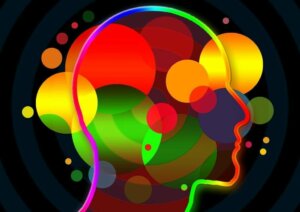What Are Socio-Emotional Skills?


Written and verified by the psychologist Valeria Sabater
Every day, researchers are discovering new and wonderful properties of socio-emotional skills. Sometimes people compare them to the aloe vera plant because they’re healthy, promote wellness, and they’re accessible to everyone. They are, in short, an important set of tools that facilitate the emotional management necessary to get along with others.
The concept is fairly easy to understand, but often difficult to apply, in the real world. We say that because, as you may have noticed, humans are in a constant struggle with the emotional world. That’s why some schools are starting to incorporate socio-emotional skills into their curriculums. They hope to help students develop these crucial abilities that’ll serve them for the rest of their lives.
It’s important for today’s children to grow into adults who know how to develop positive relationships, communicate and make assertive decisions, and create nurturing, empathetic, harmonious, and understanding environments. The efforts that we make as a society toward these goals will benefit everyone.
We should clarify that children aren’t the only ones who need to do this work. Adults also have the responsibility to improve this psychological muscle that’s so important for well-being.

What are socio-emotional abilities?
That all sounds great, but what exactly are socio-emotional abilities? In a nutshell, they’re “tools for life”. A study conducted by Dr. Joseph Durlak at the University of Illinois found that this set of competencies is the result of combining the emotional lessons that happen at home and at school with the individual’s personal emotional development.
This combination is important for shaping children, teens, and adults into people capable of effectively navigating their day-to-day life. After all, if you master socio-emotional skills, you’ll do better in school, at work, and in your relationships. Let’s take a closer look.
What are the socio-emotional skills you should develop?
Jones, DE., Greenberg, M., and Croley, M. (2015) argue that honing soci0-emotional skills in childhood isn’t just good for social adaptation. In their work, they found that developing these competencies has a positive impact on physical and mental health as well.
The basic socio-emotional skills are:
- Self-awareness. This is the ability to recognize emotions and their relationship with thoughts and behaviors.
- Self-management. Your ability to regulate your emotions in different situations without losing control. Knowing how to adjust and adapt your behavior appropriately.
- Social awareness. The ability to connect with others by understanding realities other than your own.
- The ability to communicate, express yourself, know how to listen, and know how to solve problems are also very important.
- Good decision-making is another important skill in this category.
- Setting realistic and positive goals and being able to achieve them.
- Last but not least, the ability to build healthy, positive, and happy relationships.
Why are socio-emotional skills so important?
In a study conducted by Dr. Damon Jones at the University of Pennsylvania, researchers found that children trained in socio-emotional abilities from the age of four performed better for their entire academic career. Not only that, but they continued to benefit as adults. They were more satisfied at work, had better relationships, and enjoyed overall better well-being than people without this training.
There are many benefits to learning these skills:
- Enhance your perseverance in achieving your goals. When you have your emotions on your side, you improve all of your abilities.
- More satisfying relationships with family, friends, and coworkers.
- More effective problem-solving.
- You’ll get along better with people because you’ll know how to manage your emotions and connect well with others.
- An enhanced ability to set boundaries.
- Improved self-esteem, self-efficacy, and self-control.
- You’ll help create a more empathetic and humane environment.
- Less violence and aggression.
- Lower levels of stress and anxiety.
- Better overall mental and physical well-being.

How to improve your socio-emotional abilities
The dialogue about socio-emotional abilities often takes place in the educational field. We know that children and adolescents need to master these skills from a young age.
But what about adults? Is it too late for us? The short answer is no. It’s never too late to exercise your emotional muscle.
The keys to strengthening your socio-emotional abilities are the following:
- Get to know yourself. Discover your emotional limits. Do you often lose control? Is it hard for you to agree with, communicate, and connect with others? Do you have a hard time identifying your needs and feelings? Identify your emotional shortcomings so you know where to start.
- According to Daniel Goleman, you should be channeling your emotions onto a more productive path. It’s possible that, so far, your emotions have only brought you stress and anxiety. They can do so much more, and they should. Your emotions should set you on the path to well-being and contentment. They can only do that, however, if you’re aware of them. If something is bothering you, look for the emotion behind it (sadness, anger, and frustration, among others). Name what you’re feeling and give it some space. Recognize it and try to listen to the message it’s sending you.
- It’s never too late to improve your communication abilities, your empathy, and your assertiveness.
Don’t be afraid to change
Lastly, remember that you live in the company of other people. We are social beings by nature, so we have to take care of each other, understand each other, and strive to create more habitable and productive environments for everyone.
In conclusion, you can (and should) be part of the change. With some commitment and drive, you can help create a more empathetic society where mastering and understanding emotions translates into a better quality of life.
All cited sources were thoroughly reviewed by our team to ensure their quality, reliability, currency, and validity. The bibliography of this article was considered reliable and of academic or scientific accuracy.
- Durlak, JA, Weissberg, RP, Dymnicki, AB, Taylor, RD y Schellinger, KB (2011). El impacto de mejorar el aprendizaje social y emocional de los estudiantes: un metaanálisis de intervenciones universales basadas en la escuela. Desarrollo infantil, 821, 405-432.
- Jones, DE, Greenberg, M. y Crowley, M. (2015). Funcionamiento socioemocional temprano y salud pública: la relación entre la competencia social del jardín de infancia y el bienestar futuro. Revista Estadounidense de Salud Pública, 105, 2283-2290.
This text is provided for informational purposes only and does not replace consultation with a professional. If in doubt, consult your specialist.








